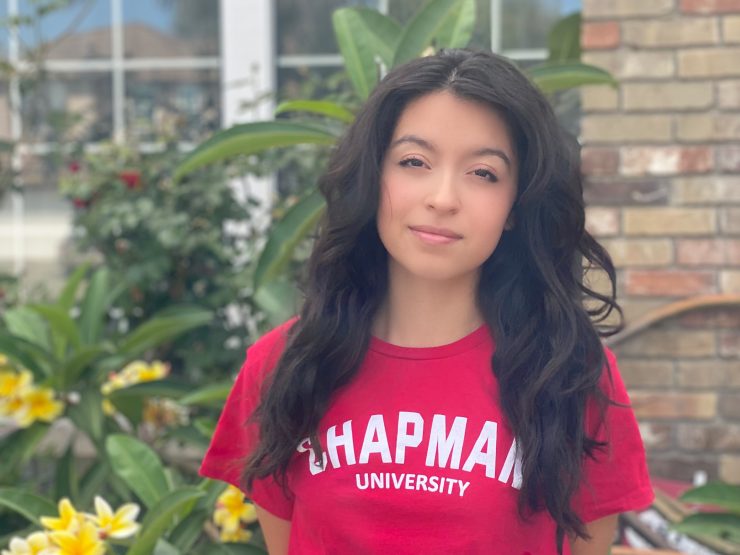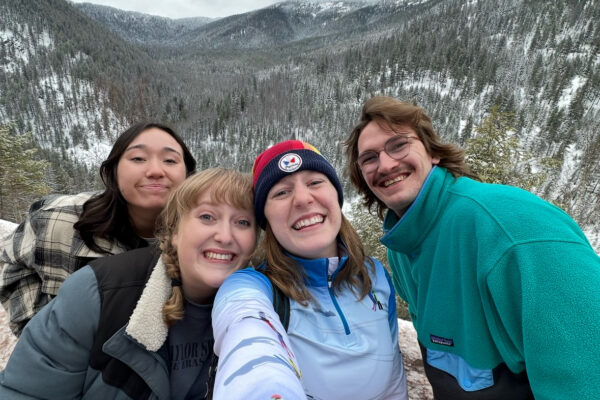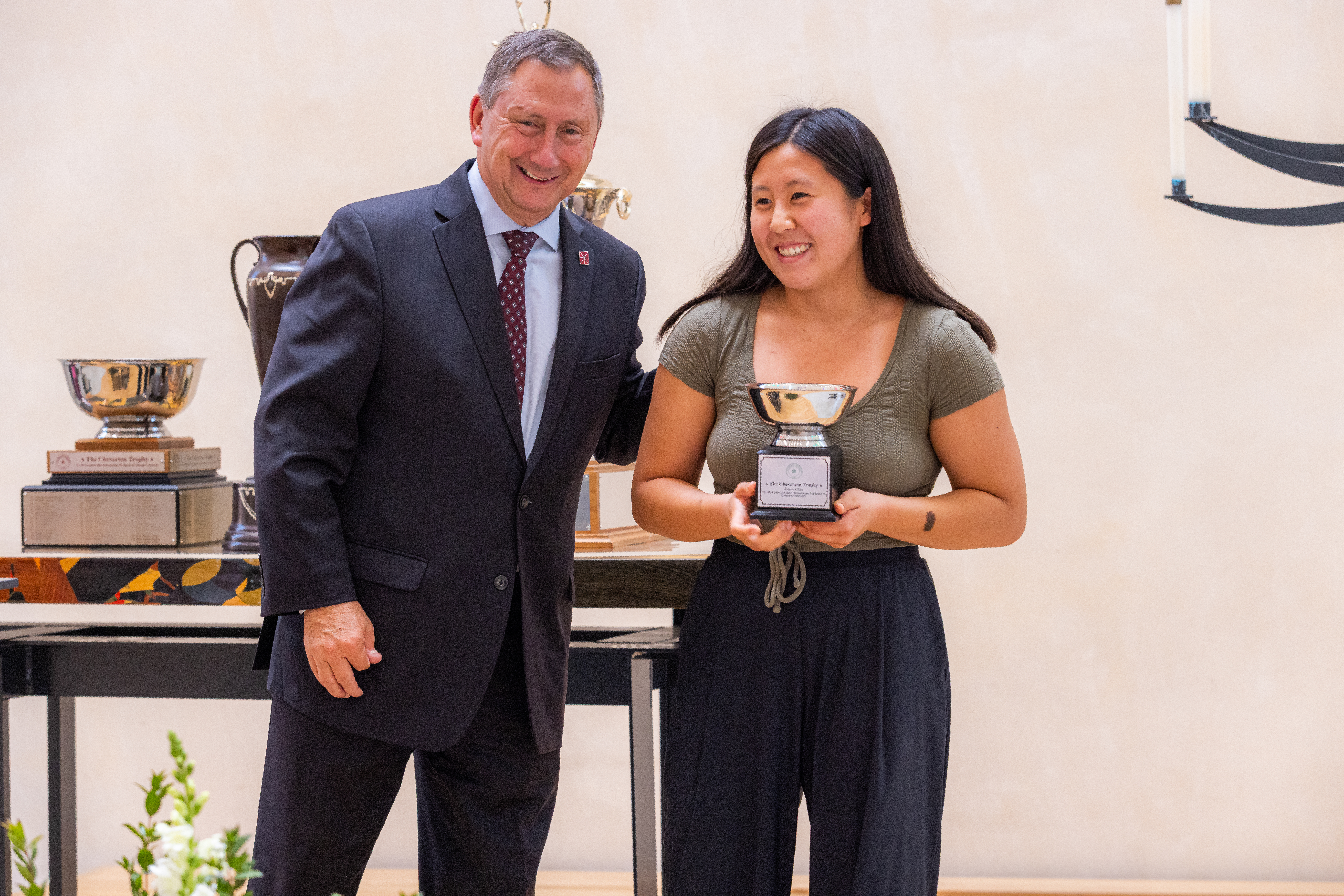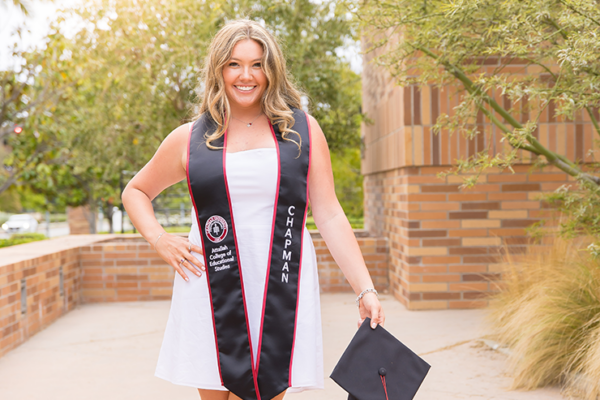“An artist’s duty, as far as I’m concerned, is to reflect the times.” Nina Simone’s words still inspire artists today to allow their work to tell the stories that may go unheard or forgotten as time goes on.
Vivianna Juarez ’25 is a double major in both philosophy and art, minoring in English.
Juarez was given the opportunity to participate in Chapman’s 2023 Summer Undergraduate Research Fellowship, otherwise known as SURF.
Coming from a military family, Juarez is inspired by the commitment and bond between veterans. “This project is personal to me. My SURF objective was to combine the academic subjects of art with social and political issues regarding the forgotten and sometimes unrecognized sacrifices of our military volunteers, specifically those who return after a tour of duty with physical and psychological trauma. The project’s goal was to use the art medium of black-and-white film photography to bring attention, engagement, respect, and perhaps promote conversations about the sacrifices of soldiers and the lifetime disabilities that affect them and their families,” she says is the inspiration behind her research project, Home of the Brave.
What is the lived experience of US military vets? How are their lives impacted, and what can we do to help? This project calls for society to take a closer look at these heroes to help them make a life for themselves off the battlefield.
Home of the Brave is a deep dive into the long-lasting effects of war on disabled veterans, and a call to action. “While some disabilities are visible, many others are psychological affecting their emotional stability their entire life,” said Juarez. “After interviewing my first veteran I realized that the disability not only affected the veteran themselves but was also shared by their spouse or partner and their children.”
The research was conducted through one-on-one, in-person interviews and photoshoots with veterans to learn about their daily struggles and how we can help as a society. “The most challenging part,” Juarez shared, “is getting a veteran to open up to a total stranger. I’ve spent an hour to two days on an interview.”
Some veterans were hesitant to speak about their military life, and some declined altogether as it is an understandably sensitive topic. “I traveled from Texas to Northern California and in some cases it took two or three days to conduct and interview. Interviewing a veteran is subject that should be conducted with the utmost respect,” says Juarez.
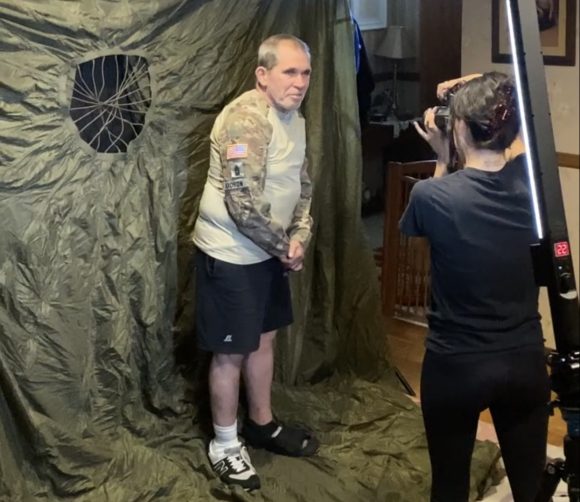
Finding female veterans proved to be a challenge for Juarez. Upon locating one, she found that the women are that much more protective of one another. “Spending time with a female veteran took longer, as I quickly learned that the issues surrounding female veterans are similar in some ways to the men, yet different in others.” Juarez hopes that this interview will lead her to other female veterans in the future.
The process of meeting with veterans and their families ignited an emotional growth within Juarez “I came to understand that the responsibility of this project was far beyond myself and SURF here at Chapman. I have a responsibility toward these veterans. I can only hope they know how they have undoubtedly changed my life and perspective. I owe a debt with great respect and gratitude to these volunteer military soldiers who have allowed me into their homes and lives.”
Juarez is forever changed after encountering these veterans, so much so that she has a new dream for her future. “It sparked a passion for me to continue this work through my Ph.D. It changed the purpose and direction of my Art. If this project could give a louder voice and bring purposeful attention to bring about positive change, then this is where I have found my passion.” She shared that she now feels a responsibility to the veterans and their families who have permitted her to share their stories; in an effort to bring much needed change to how disabled veterans are cared for.
“We’ve built a bond that goes beyond the interview, beyond the research project. I met their family, their children,” she said. “The most rewarding part of this experience are the connections I made with people beyond their status and what they do, on an emotional level. Earning the privilege to listen to and share their stories, that trust they gave me, has been very rewarding.”
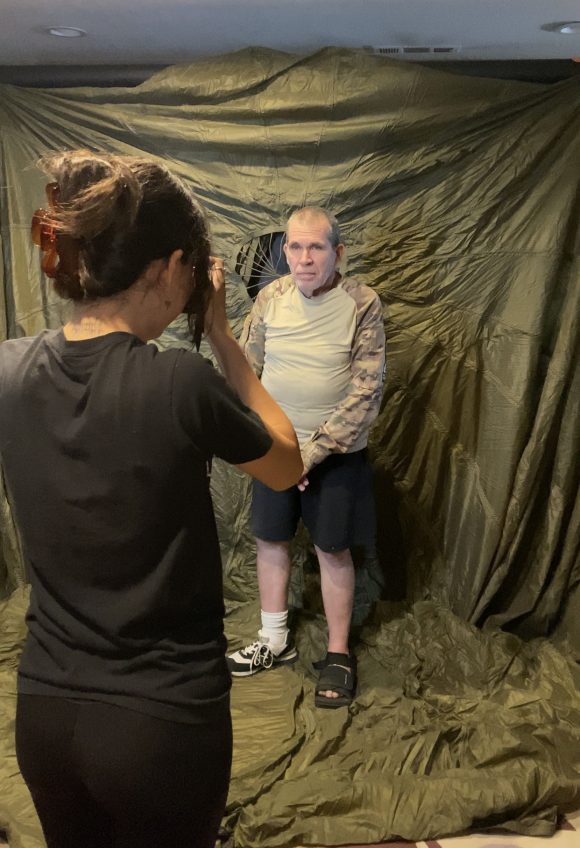
US veterans are often pushed aside due to their disabilities, and there aren’t enough resources available to help them adjust to civilian life once discharged. Juarez hopes that her research will raise awareness and influence political action.
“Veterans all look out for each other, and they just want help and understanding,” she said. “All of them expressed to me in one way or another that although they were disabled, they are still positive contributors to society.”
Juarez’s goal at the start of the project was to make an impact with her art, though she was unsure how it would be received. Now, she feels that her art has direction “I will continue this project until it is precisely what I envision it to become; a step forward in addressing the needs of combat soldiers and their families and provide them with better care and help.”
Nina Simone’s words ring true for this young artist, as she has decided to continue her interviews beyond the SURF program.
SURF is organized by Chapman’s Center for Undergraduate Excellence. During this on-campus, eight-week program, students receive hands-on research experience and a creative scholarship. For their 30 hours of research, students are provided with an expert faculty mentor and $4,000 stipend.
